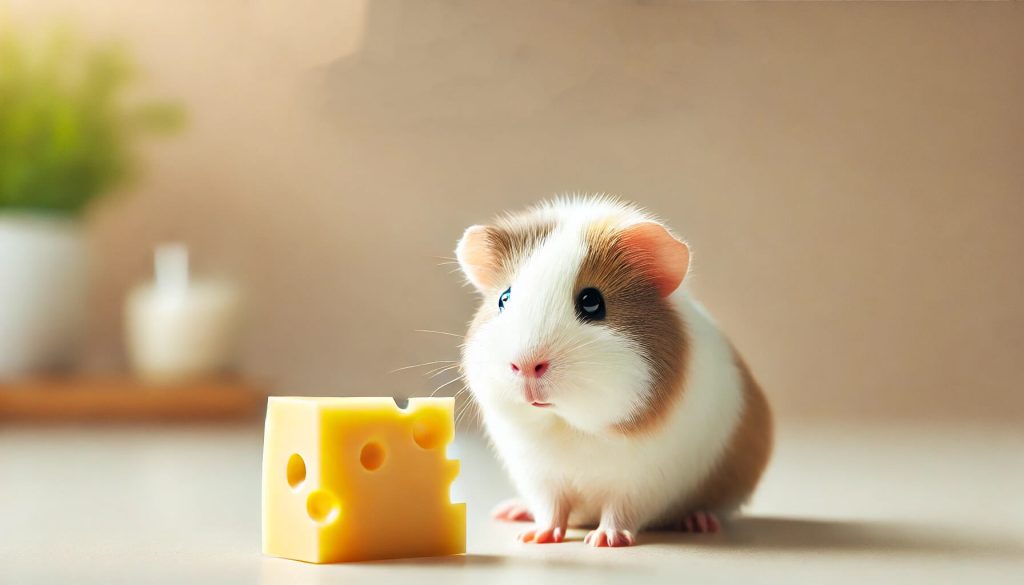
Can Guinea Pigs Eat Cheese?
Understanding Guinea Pigs’ Dietary Needs
Guinea pigs have strict dietary needs that must be met to maintain their health. Understanding what they can and can’t eat helps ensure their well-being.
What Do Guinea Pigs Normally Eat?
Guinea pigs primarily eat hay, vegetables, and specially-formulated pellets. Hay, such as Timothy or Meadow, forms the bulk of their diet, providing necessary fiber for digestion. Fresh vegetables, including bell peppers and leafy greens like Romaine lettuce, supply essential vitamins like vitamin C. Pellets, designed specifically for guinea pigs, offer a balanced mix of nutrients.
Common Foods for Guinea Pigs:
- Hay: Timothy, Meadow, Orchard grass
- Vegetables: Bell peppers, Romaine lettuce, carrots, cucumbers
- Pellets: Fortified with vitamin C, no added sugars or artificial ingredients
- Fruits (in moderation): Strawberries, apples (no seeds), blueberries
Nutritional Requirements and Restrictions
Guinea pigs require a diet high in vitamin C, as they can’t produce this vitamin themselves. A lack of vitamin C can lead to serious health issues like scurvy. Fresh vegetables and fortified pellets help meet this need. They also need a constant supply of hay to maintain dental health and proper digestion.
Avoid foods high in calcium and oxalates, such as spinach and kale, as these can cause urinary problems. Sugary foods, including many fruits, should be given sparingly. Grass clippings, chocolate, and seeds present choking hazards and are toxic to guinea pigs.
Restricted Foods for Guinea Pigs:
- High Calcium Foods: Spinach, kale
- Sugary Treats: Candies, processed fruit snacks
- Toxic Items: Chocolate, grass clippings, seeds
Meeting these dietary needs and restrictions ensures your guinea pig stays healthy and happy, avoiding potential health risks and providing a balanced nutritional intake.
Can Guinea Pigs Eat Cheese?
You might be curious if guinea pigs can eat cheese. The simple answer is no. Cheese isn’t suitable for guinea pigs due to their specific dietary needs and digestive system.
The Digestive System of Guinea Pigs
Guinea pigs have a unique digestive system. They’re herbivores, meaning they thrive on a plant-based diet. Their diet primarily consists of hay, fresh vegetables, and specially formulated pellets. The high fiber content in these foods ensures proper digestion and helps prevent gastrointestinal issues. Guinea pigs lack the enzymes lactase and cannot digest lactose, a component found in dairy products like cheese. Consuming foods outside their dietary needs can disrupt their digestive system and lead to health issues.
Risks of Feeding Cheese to Guinea Pigs
Feeding cheese to guinea pigs poses significant health risks. Cheese contains high-fat content, which guinea pigs cannot process efficiently, leading to obesity. The lactose in cheese can cause severe digestive problems, including diarrhea and bloating. Compromised digestion may result in a lack of essential nutrients. Additionally, cheese’s high calcium levels can contribute to urinary tract issues, such as bladder stones. It’s crucial to avoid offering cheese and stick to foods specifically designed for their dietary requirements.
Alternatives to Cheese for Guinea Pigs
Cheese isn’t suitable for guinea pigs. However, there are many healthier alternatives that cater specifically to their dietary needs.
Healthy Treats and Snacks
Healthy treats for guinea pigs include various fruits and vegetables. Offer small portions of fruits like apples and berries. Vegetables like bell peppers, carrots, and leafy greens like kale can provide essential nutrients without harming your pet. Always wash these treats thoroughly before serving.
| Food Type | Examples | Frequency |
|---|---|---|
| Fruits | Apples, Berries | Once or twice a week |
| Vegetables | Bell Peppers, Carrots | Daily |
| Leafy Greens | Kale, Spinach, Romaine | Daily |
Make sure you avoid sugary treats or processed snacks. Opt for natural, fresh options that align with a guinea pig’s herbivorous diet.
How to Introduce New Foods to Your Guinea Pig
Introduce new foods one at a time to monitor for any adverse reactions. Start with a small piece and observe your guinea pig for 24 hours for signs of digestive issues or allergies. Gradually increase the portion size over a few days if no adverse reactions occur.
Rotate different vegetables and fruits to ensure a balanced intake of various nutrients. Always remove uneaten food promptly to prevent spoilage.
Conclusion
Ensuring your guinea pig’s diet is balanced and nutritious are essential for their overall health. While cheese might be tempting to offer as a treat, it’s best to stick with safe and healthy options like fresh fruits and vegetables. Always monitor your pet for any adverse reactions when introducing new foods and rotate their diet to provide a variety of nutrients. By focusing on foods that align with their natural herbivorous diet, you’ll be supporting your guinea pig’s well-being and longevity.
